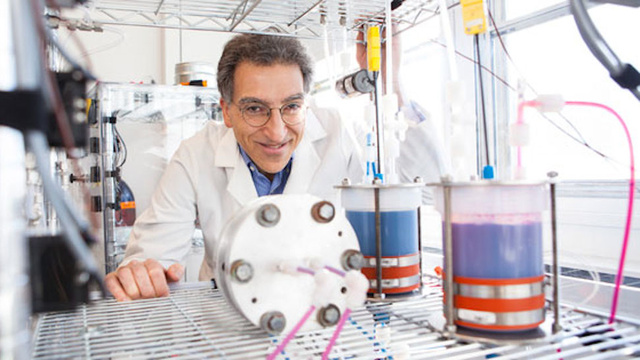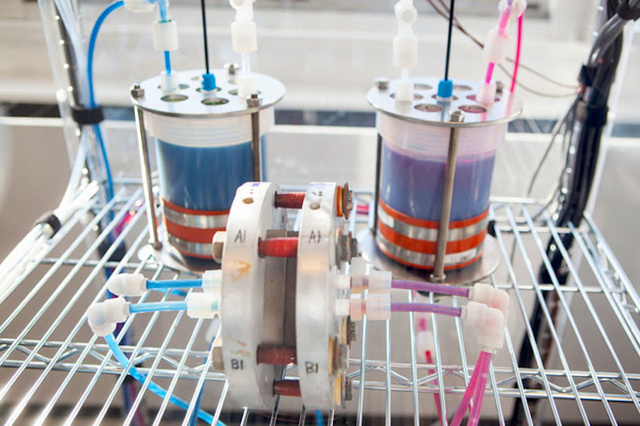
The only area in tech that hasn't advanced as crazy like processors and transistors are batteries. It is very hard to make the perfect battery. They are either too inefficient or too expensive or too unstable to power the renewable gadgets of the future. But a molecule found in food might be able to solve those problems.
The new kind of battery use molecules called quinones. The organic compounds are identical to the molecules found in rhubarb and the Harvard team built the batteries by harnessing the electrochemistry of the quinonnes. The remarkable feat? It costs $27 per kilowatt-hour, making it remarkably economical.

"The intermittent renewables storage problem is the biggest barrier to getting most of our power from the sun and the wind," lead researcher Michael J. Aziz
told the press. "A safe and economical flow battery could play a huge role in our transition off fossil fuels to renewable electricity. I'm excited that we have a good shot at it."
[
CBC Images by Eliza Grinnell, Harvard SEAS Communications]